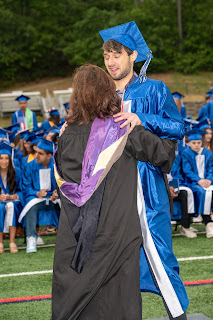Third Grade: From Learning to Read to Reading to Learn
It’s been a while since I blogged, which is not what I had planned. I started this blog in some ways because life rarely goes how you expect, and the last year has been true to form. After a few good conversations about shared experiences and a realization that this month is Dyslexia awareness month, I’m back.
So, first, a recap… Wilson was identified with dyslexia at the end of first grade. Second grade was the year we started to put the pieces together and get support for Wilson. Third grade was the year it all came together and still fell apart.
I kept in touch with Wilson’s first-grade teacher throughout the testing and placement in second grade. Since Wilson did not qualify for the Extended School Year (or we never discussed it?), and we wanted to keep some of the momentum from the end of the year, she tutored Wilson during the summer. Although she was not specifically a reading specialist, she knew how to motivate Wilson and help with his executive function issues. Sometimes, the executive function was Wilson’s biggest issue. We continued tutoring throughout the school year because having someone preview the work and practice for tests was very helpful.
Wilson’s third-grade teacher was another veteran teacher who was tough but also deeply caring. This combination was what Wilson needed as he figured out how to balance learning to read and reading to learn. His teacher and I talked constantly to make sure the support was working and that we were reinforcing things at home that were taught at school. Third grade is a huge year.
Homework in this class was different than in others, but it worked for us. Wilson had a binder where he recorded the homework activities of his choice. The ability to choose was always important to Wilson. The ask was to do math activities of almost any kind. We played a lot of cards, which worked much better than the Xtramath computer program. He also had to read a certain amount and then write three sentences about what he read.
The lack of worksheets was good, but recording the reading summaries was painful. At this point, Wilson’s encoding was as bad as his decoding. He was not able to write the three sentences that were in his head. So, we would do it together. Wilson would dictate his ideas to me, and I would write them down and then read them back to him to record. It worked pretty well but was time consuming. Wilson was thoughtful and composed when he told you about a topic, but he could not put those ideas in writing.
Wilson’s IEP focused on his dyslexia diagnosis. We decided to start there and then figure out the ADHD next if it was not just a symptom of his frustration. Wilson was pulled out of class every day to meet with the reading specialist. He was learning to read using Wilson, a Tier 3 Structured Literacy program based on phonological-coding research and Orton-Gillingham principles. It’s a multi-sensory program following the science of reading.
https://www.wilsonlanguage.com/programs/wilson-reading-system/
https://en.wikipedia.org/wiki/Orton-Gillingham
(On a side note, I’m so happy that the Walpole School district is using Fundations now for early literacy. It’s another Wilson program that benefits all students.)
While the behavioral problems seemed mostly gone, he still had issues focusing in class. We had many conversations about Wilson rushing through his work and not really paying attention to what he was supposed to be doing. Instead of the “Wilson should know better conversation,” the conversations with his teacher were, “Wilson is a wonderful kid, and he’s not working up to his potential.” His teacher and I talked often about how to get him to be a little more serious. So, in January, we talked with Wilson about what it means to be a student.
I don’t remember the conversation as much as I remember sitting at the table in the little chairs with a fidgety boy who didn’t really know why he was in school. I know we told him that going to school was like his job. I believe it made a difference. Wilson has always taken these conversations seriously and honestly learned from whatever you explained to him. Like many parents, I wasn’t always sure what was going through his little mind when he made the bad decisions in the first place.
By the end of the year, Wilson had started to advocate for himself. The combination of a great teacher, a reading specialist with the proper support, and the extra help of a tutor who knew him helped to put the pieces together. He also understood that and shared it with me one day while driving home. He was telling me how much his teachers were helping him this year. Then he told me that it's like a life cycle - "My third-grade teacher teaches me everything and gives me spelling words. My reading teacher helps me figure them out, and then my tutor helps me study them. I take the test, and then it starts all over again." We talked for a while about different life cycles, and I told him he was super smart. Wilson then said, "Sometimes I think I'm really dumb, and then I come up with something really smart like the life cycles."
Maybe things would be ok after all.






Comments
Post a Comment